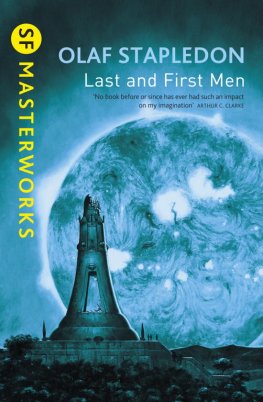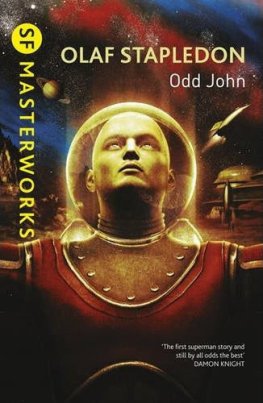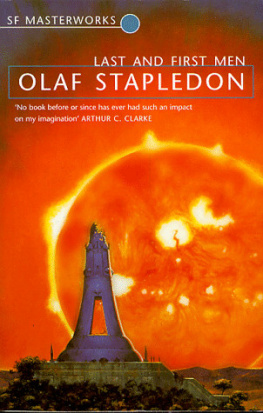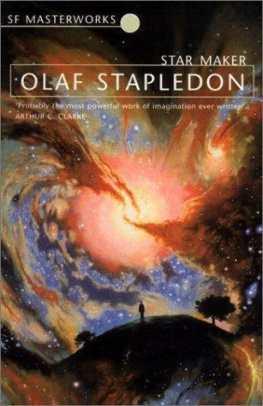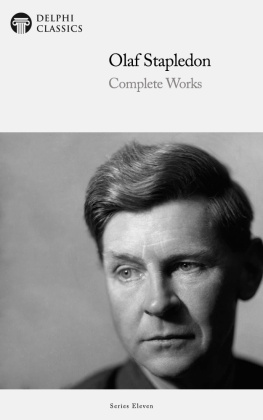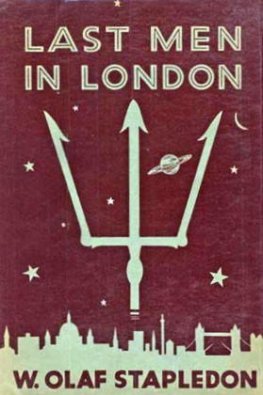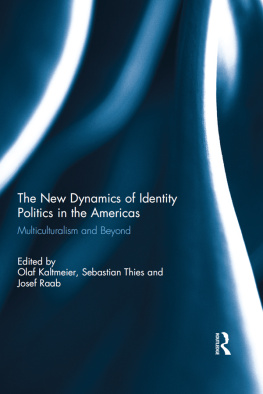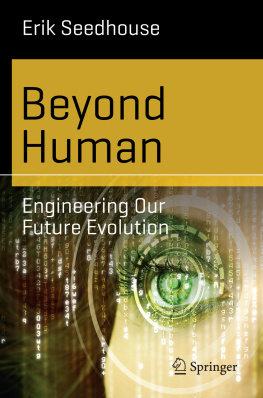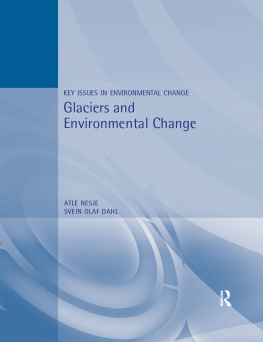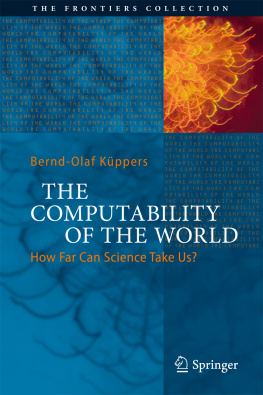Olaf Stapledon
LAST AND FIRST MEN
A STORY OF THE NEAR AND FAR FUTURE
Science Fiction Masterworks Volume 11

In the last years of the twentieth century (as Wells might have put it), Gollancz, Britains oldest and most distinguished science fiction imprint, created the SF and Fantasy Masterworks series. Dedicated to re-publishing the English languages finest works of SF and Fantasy, most of which were languishing out of print at the time, they were and remain landmark lists, consummately fulfilling the original mission statement:
SF MASTERWORKS is a library of the greatest SF ever written, chosen with the help of todays leading SF writers and editors. These books show that genuinely innovative SF is as exciting today as when it was first written.
Now, as we move inexorably into the twenty-first century, we are delighted to be widening our remit even more. The realities of commercial publishing are such that vast troves of classic SF & Fantasy are almost certainly destined never again to see print. Until very recently, this meant that anyone interested in reading any of these books would have been confined to scouring second-hand bookshops. The advent of digital publishing has changed that paradigm for ever.
The technology now exists to enable us to make available, for the first time, the entire backlists of an incredibly wide range of classic and modern SF and fantasy authors. Our plan is, at its simplest, to use this technology to build on the success of the SF and Fantasy Masterworks series and to go even further.
Welcome to the new home of Science Fiction & Fantasy. Welcome to the most comprehensive electronic library of classic SFF titles ever assembled.
Welcome to the SF Gateway.
MAN seems to be entering one of the major crises of his career. His whole future, nay the possibility of his having any future at all, depends on the turn which events may take in the next half-century. It is a commonplace that he is coming into possession of new and dangerous instruments for controlling his environment and his own nature. Perhaps it is less obvious that he is also groping toward a new view of his office in the scheme of things, and toward a new and racial purpose. Unfortunately he may possibly take too long to learn what it is that he really wants to do with himself. Before he can gain clear insight, he may lose himself in a vast desert of spiritual aridity, or even blunder into physical self-destruction. Nothing can save him but a new vision, and a consequent new order of sanity, or common sense.
America may play an important part in creating the new vision. But visions, if they are to be permanently helpful, must embody the whole breadth and depth of experience. They must not be crude, extravagant, lop-sided. They must be conceived not only with originality but with sanity, even if sanity has to take up a new orientation in consequence of the new vision.
In early chapters of this book America is given a not very attractive part. I have imagined the triumph of the cruder sort of Americanism over all that is best and most promising in American culture. May this not occur in the real world! But since the possibility of such an issue is admitted even by many Americans themselves, I shall, I hope be forgiven for emphazing it, and using it as an early turning point in the long drama of Man.
THIS is a work of fiction. I have tried to invent a story which may seem a possible, or at least not wholly impossible, account of the future of man; and I have tried to make that story relevant to the change that is taking place today in mans outlook.
To romance of the future may seem to be indulgence in ungoverned speculation for the sake of the marvellous. Yet controlled imagination in this sphere can be a very valuable exercise for minds bewildered about the present and its potentialities. Today we should welcome, and even study, every serious attempt to envisage the future of our race; not merely in order to grasp the very diverse and often tragic possibilities that confront us, but also that we may familiarize ourselves with the certainty that many of our most cherished ideals would seem puerile to more developed minds. To romance of the far future, then, is to attempt to see the human race in its cosmic setting, and to mould our hearts to entertain new values.
But if such imaginative construction of possible futures is to be at all potent, our imagination must be strictly disciplined. We must endeavour not to go beyond the bounds of possibility set by the particular state of culture within which we live. The merely fantastic has only minor power. Not that we should seek actually to prophesy what will as a matter of fact occur; for in our present state such prophecy is certainly futile, save in the simplest matters. We are not to set up as historians attempting to look ahead instead of backwards. We can only select a certain thread out of the tangle of many equally valid possibilities. But we must select with a purpose. The activity that we are undertaking is not science, but art; and the effect that it should have on the reader is the effect that art should have.
Yet our aim is not merely to create aesthetically admirable fiction. We must achieve neither mere history, nor mere fiction, but myth. A true myth is one which, within the universe of a certain culture (living or dead), expresses richly, and often perhaps tragically, the highest admirations possible within that culture. A false myth is one which either violently transgresses the limits of credibility set by its own cultural matrix, or expresses admirations less developed than those of its cultures best vision. This book can no more claim to be true myth than true prophecy. But it is an essay in myth creation.
The kind of future which is here imagined, should not, I think, seem wholly fantastic, or at any rate not so fantastic as to be without significance, to modern western individuals who are familiar with the outlines of contemporary thought. Had I chosen matter in which there was nothing whatever of the fantastic, its very plausibility would have rendered it unplausible. For one thing at least is almost certain about the future, namely, that very much of it will be such as we should call incredible. In one important respect, indeed, I may perhaps seem to have strayed into barren extravagance. I have supposed an inhabitant of the remote future to be communicating with us of today. I have pretended that he has the power of partially controlling the operations of minds now living, and that this book is the product of such influence. Yet even this fiction is perhaps not wholly excluded by our thought. I might, of course, easily have omitted it without more than superficial alteration of the theme. But its introduction was more than a convenience. Only by some such radical and bewildering device could I embody the possibility that there may be more in times nature than is revealed to us. Indeed, oniy by some such trick could I do justice to the conviction that our whole present mentality is but a confused and halting first experiment.
If ever this book should happen to be discovered by some future individual, for instance by a member of the next generation sorting out the rubbish of his predecessors, it will certainly raise a smile; for very much is bound to happen of which no hint is yet discoverable. And indeed even in our generation circumstances may well change so unexpectedly and so radically that this book may very soon look ridiculous. But no matter. We of today must conceive our relation to the rest of the universe as best we can; and even if our images must seem fantastic to future men, they may none the less serve their purpose today.

